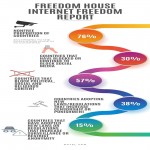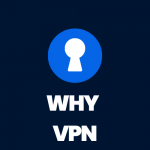In today's world, the internet has become a significant platform for accessing information, communication, and freedom of expression. However, each country has its own approach to internet freedom. Freedom House provides a comprehensive report every year that assesses the internet freedom policies, restrictions, and threats faced by countries worldwide. In this article, we will evaluate the data from the 2021 Freedom House Internet Freedom Report to examine the state of global internet freedom.
According to the report, internet freedom is declining globally. A total of 100 countries were analyzed, and only 20 countries were categorized as "Free." This indicates that only about 20% of the world's population has access to a free internet. In contrast, 36 countries were classified as "Partly Free," and 55 countries were labeled as "Not Free." These data highlight that the internet is increasingly under pressure, and freedom of expression is at risk.
The report emphasizes that censorship and restrictions are among the major threats to internet freedom. Many countries employ censorship mechanisms to control and regulate online content. Legal regulations that block or restrict access to social media platforms, news websites, and other internet resources have become widespread. This restricts access to information and hinders freedom of expression.
Furthermore, digital security and privacy issues are significant concerns highlighted in the report. Many countries have developed extensive surveillance mechanisms to monitor internet users, track their online activities, and collect their personal data. This poses a serious threat to individuals' privacy and security and weakens democratic values and human rights.
Another notable aspect in the report is the presence of digital barriers and cyber-attacks. Some countries limit internet access to restrict individuals' access to information. Additionally, cyber-attacks pose a significant threat to internet freedom. Many countries launch cyber-attacks targeting websites and online platforms critical of the government. These attacks are used to suppress freedom of expression and impede access to information.
The report also addresses the impact of the COVID-19 pandemic on internet freedom. During the pandemic, many countries implemented measures that restricted or controlled access to online content. This posed a significant challenge in terms of informing the public and suppressing free expression. It was observed that internet freedom further declined, and censorship increased during the pandemic.
In conclusion, the 2021 Freedom House Internet Freedom Report reveals that internet freedom is under serious threat globally. Censorship, restrictions, digital security threats, and access barriers hinder the internet from functioning as a free and open platform. This is a concerning situation for democracy, freedom of expression, and human rights. Countries need to review their policies and take measures to ensure a more open, transparent, and free internet environment. Only through such actions can access to information and freedom of expression be preserved and strengthened as fundamental principles of the internet.



